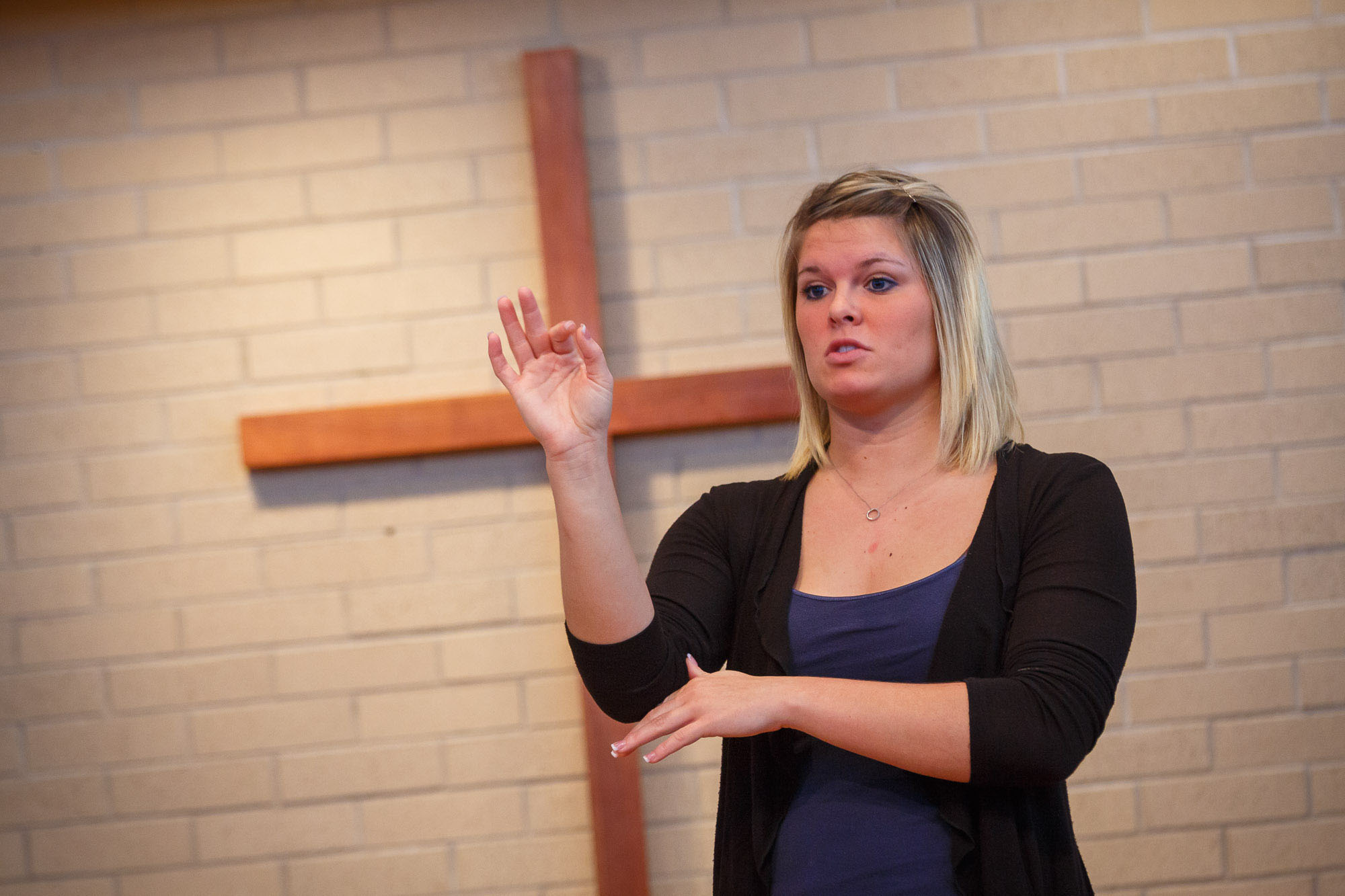This semester, five senior ASL majors left campus to go on internships around the country. They were Anna Latsha, working in Dallas, Texas; Stacy Wyse in Philadelphia, Penn.; Rosa Wyse in Nashville, Tenn.; Christine Stubblefield in Baton Rouge, La.; and Keyonna McCain in Greensboro, N.C.
According to Colleen Geier, director of American Sign Language Interpreting at Goshen College, each of these internships involves working within an interpreting agency. Every day, these students go to different assignments given to them by their agencies.“These assignments might be for medical appointments, same day surgery, medical tests, physical therapy, college classes, business meetings, staff meetings, religious events, concerts or plays, vocational rehabilitation meetings, workshops and training or substituting in a public school,” said Geier. “Pretty much anything you can think of.”
Although the substance of each of their assignments is confidential, the students report that they are constantly learning and are enjoying the challenges from the internship. For each of them, ASL interpreting is more than just a profession.
Said Wyse, “I am continuing to learn the language and how to interpret the language for a profession, but also impact people’s lives by breaking down the barrier of proving communication.”
The experience of an internship will prove vital for these students as they choose how they want to use their ASL degree following graduation. Aside from being a part of the ASL major, the students in internship programs are able to use the ASL Interpreting internship as a tool to help them decide how they might start their career.
“They’re learning a lot that will help them prepare for their career after graduation,” said Grier.
According to Geier, it is a key part of the process of earning a degree in ASL Interpreting – therefore becoming a qualified interpreter – for students to gain a broad range of experience in interpreting in many different contexts.
Recent Goshen College graduates have gone on to become community interpreters in larger agencies, education interpreters in the public school system, and independent interpreters.



